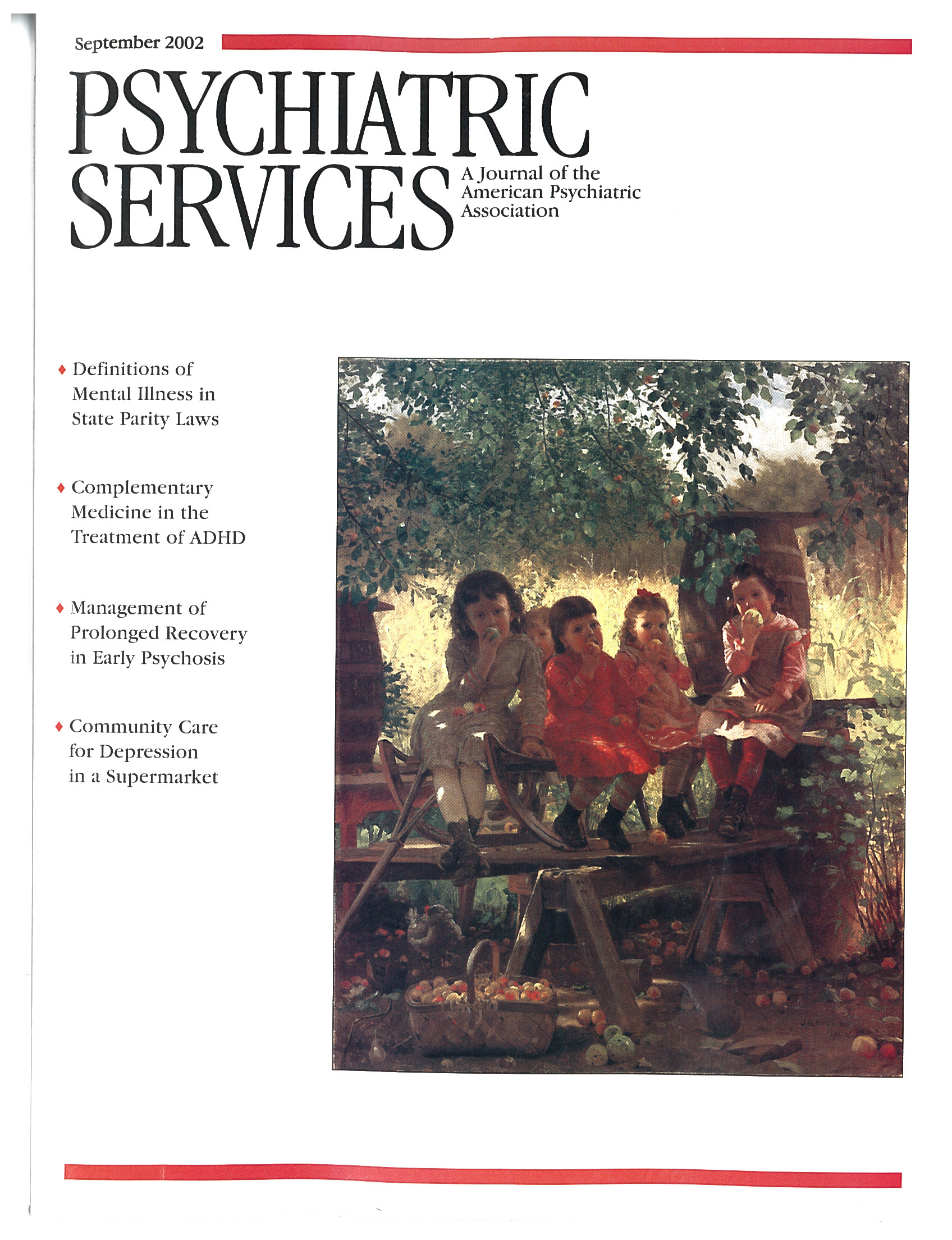A Pilot Study of Community Mental Health Care for Depression in a Supermarket Setting
Abstract
OBJECTIVE: Women with depression whose diagnosis is made in community mental health clinics attend relatively few treatment sessions. A pilot project was undertaken to test the feasibility of providing psychotherapy for depressed women in a supermarket, a novel setting that may minimize barriers to care such as stigma associated with visiting a mental health clinic. METHODS: Twelve women who met DSM-IV criteria for a depressive disorder were recruited from a rural mental health clinic and offered 16 weekly sessions of supportive psychotherapy with cognitive-behavioral elements in an administrative conference room of a local supermarket. Outcomes measured were treatment attendance, depressive symptoms, and satisfaction with treatment. RESULTS: Six of the women completed the study. For the entire group, the mean number of sessions attended was 5.2. Those who completed the study attended an average of 8.7 sessions and showed significant improvement on measures of depression and anxiety. They rated their treatment experience as "very satisfactory." For the two therapists, conducting therapy in the supermarket presented some logistical problems, such as limited access to telephones and the absence of a check-in desk. The therapists also reported that providing therapy in this setting was challenging to their professional identities. CONCLUSIONS: The women in the study found treatment in the supermarket to be an appealing alternative to the mental health clinic because of greater accessibility, a perceived reduction in stigma, and convenient "one-stop shopping" for both groceries and mental health treatment.



